Every time Europe looks across the Atlantic to see the American Eagle, it observes only the rear end of an ostrich
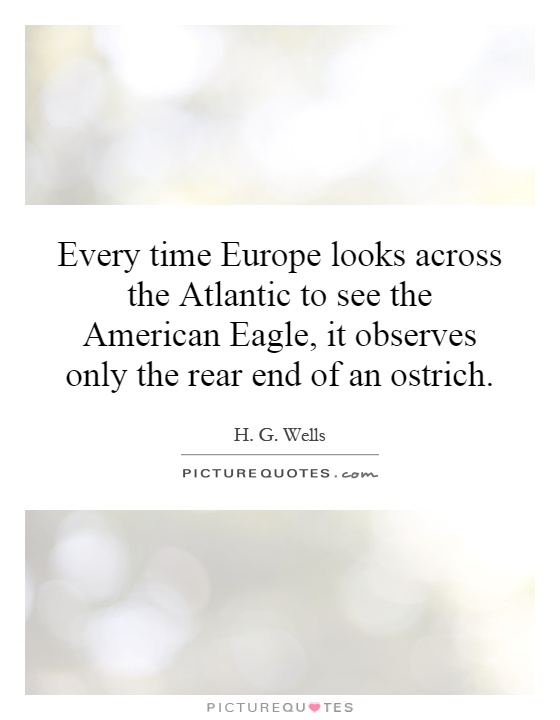
Every time Europe looks across the Atlantic to see the American Eagle, it observes only the rear end of an ostrich
In the quote, “Every time Europe looks across the Atlantic to see the American Eagle, it observes only the rear end of an ostrich,” H.G. Wells is making a scathing critique of American society and politics. This quote can be interpreted as a commentary on the superficiality and ignorance of American culture, as well as its tendency to turn a blind eye to important issues.H.G. Wells was a British writer known for his science fiction novels, such as "The War of the Worlds" and "The Time Machine." He was also a social critic who often commented on the state of society and politics in his works. In this quote, Wells is suggesting that Europe sees America as a powerful and majestic symbol (the American Eagle), but upon closer inspection, it realizes that America is actually ignorant and foolish (the rear end of an ostrich).
The American Eagle is a symbol of strength, freedom, and power. It is often used to represent the United States and its values. However, Wells is suggesting that this image is merely a facade, and that America is actually more like an ostrich – a flightless bird known for burying its head in the sand when faced with danger. This metaphor implies that America is not as strong or as wise as it appears to be, and that it is more concerned with appearances than with reality.
Wells may have been commenting on the political climate in America at the time, which was marked by corruption, greed, and ignorance. He may have been criticizing American politicians for their lack of integrity and their willingness to ignore important issues in favor of personal gain. By comparing America to an ostrich, Wells is suggesting that America is not living up to its potential as a great nation, and that it is in danger of losing its way.
Overall, this quote from H.G. Wells is a powerful and thought-provoking critique of American society and politics. It challenges us to look beyond the surface and to question the true nature of the things we hold dear. It reminds us that appearances can be deceiving, and that we must always strive to see the world as it truly is, not as we wish it to be.
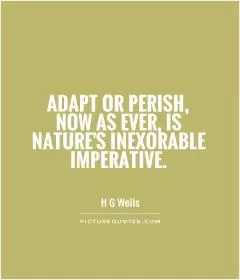


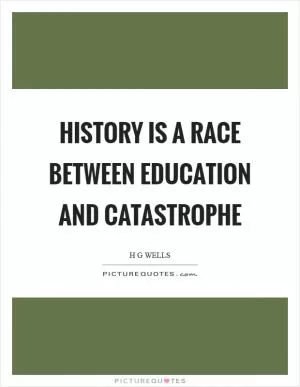

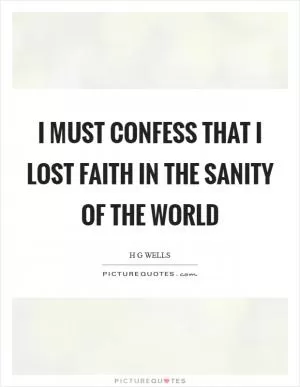
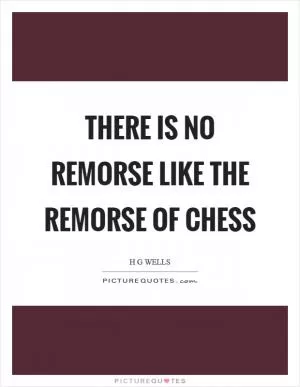
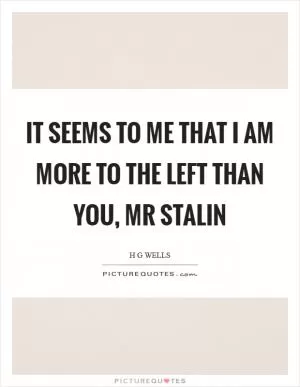
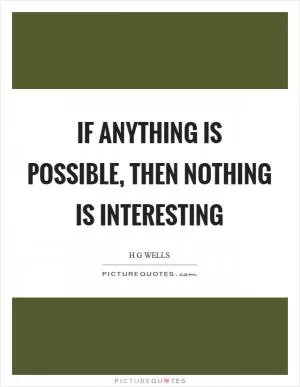


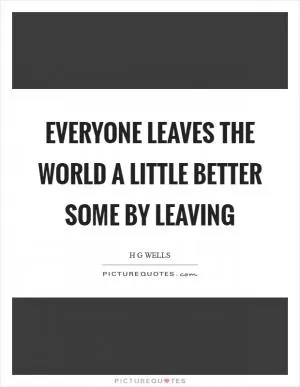
 Friendship Quotes
Friendship Quotes Love Quotes
Love Quotes Life Quotes
Life Quotes Funny Quotes
Funny Quotes Motivational Quotes
Motivational Quotes Inspirational Quotes
Inspirational Quotes